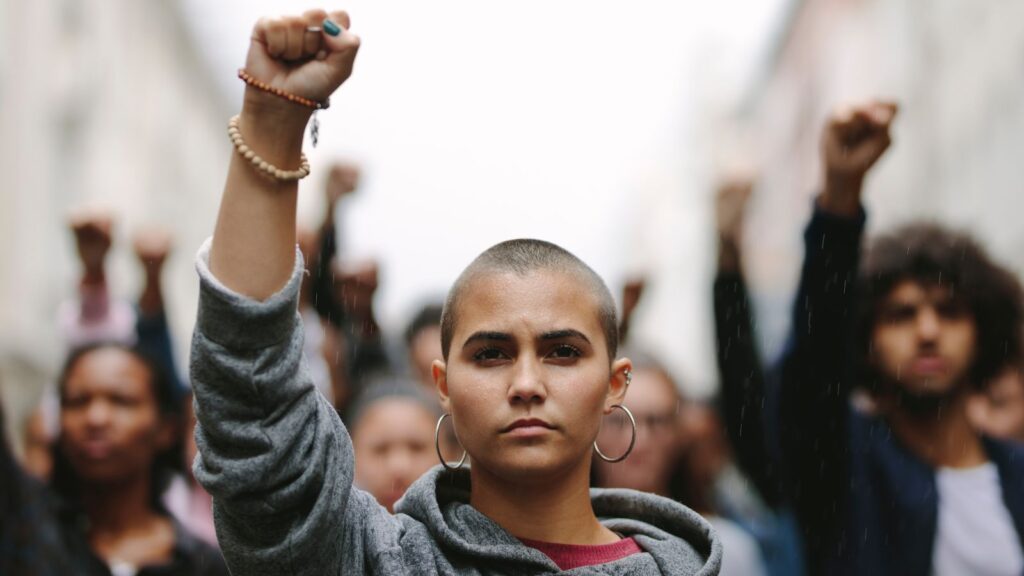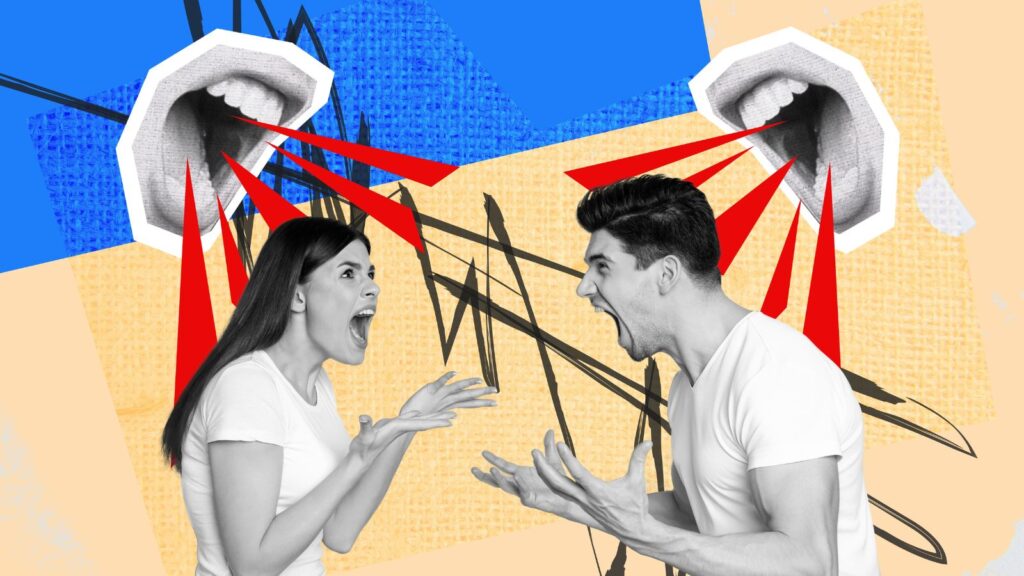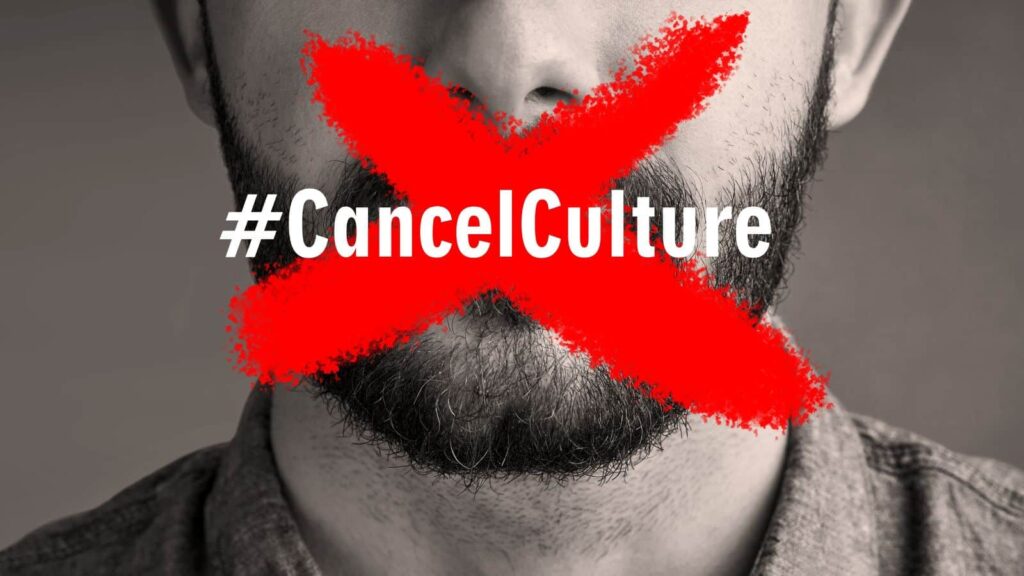The term “woke”, derived from African American Vernacular English, has grown in popularity over the last decade. To be woke is to be aware of politically relevant issues, especially those related to social justice. The movement encompasses a general state of attentivity to such issues and an overall sense of empathy surrounding diverse communities. It’s usually affiliated with liberal ideologies and often used as an insult by conservatives, akin to “snowflake”, meaning overly sensitive.
In many ways, it’s true, though. Advocates are sensitive. Whether or not this is a bad thing depends on who you ask. Advocacy for social justice and human rights is an essential thing, but it can often leave the person feeling burnt out and emotionally exhausted. The world needs people who care, but sometimes caring can hurt a lot.
Is there a way to embrace your good heart and use it for the greater good while also protecting it? This is a problem that can only be solved by the individual. It starts, though, with recognizing the ways in which your wokeness can harm you and seeking balance in your life. Here are 19 of the good and bad ways that being woke can influence your mental health.
Communal Solidarity

As an advocate who is active in that world, you may find yourself a part of a community you did not know how to belong in before. This is deeply empowering as there is so much strength in numbers and you can find mentorship and be inspired by the work of those around you.
Burnout

If you work too hard without giving yourself a break, your body will force you to shut down. That’s just how it works. It’s important to schedule sufficient time for yourself to not be worrying about anyone but you. It’s not selfish! Rest allows you to refuel to give your best to your cause.
Hyper-awareness

As you find yourself getting more and more involved in activism, you’ll begin to notice more things that upset you. Social injustices, in whatever form they take, will start to impact you more and you will likely struggle to ignore it. That’s not necessarily a bad thing, as long as you take the time to unplug often enough.
Strengthening Your Identity

Being part of a greater cause can allow you to see yourself in a new light and give you a stronger sense of personal identity. That’s because finding something you care about can help define who you are, and that is a wonderful thing.
Relentless Watchfulness

It’s possible you will become so hyper-attuned to the injustices of the world that you won’t be able to shut your vigilant side off. You’ll be incapable of seeing people the way you once did and perhaps even be searching for issues where there are none.
Doubt in Personal Credibility

Otherwise known as imposter syndrome, this is something you might struggle with if you feel that you are unequipped to be part of a cause. Especially when it comes to being an ally, you may not think you have the experiences to be part of a certain group. However, allyship is very important and creates stronger representation all around, so there is no need to feel out of place. Just focus on listening and amplifying the words of the community at hand.
Confidence-building

It can be so inspiring to be part of a group and to know you’re doing something good. Having a cause that you can identify with is a great way to build confidence in yourself and your place in the world. It’s also important, though, to work towards that inner strength outside of political and social causes.
Feelings of Hypocrisy

In becoming invested in a social rights cause, you may begin to notice things you’ve said or done in the past that don’t exactly align with what you are supporting now. It’s important in these times to give yourself grace for what you didn’t know while still remaining accountable. You are responsible for your actions, but they don’t have to define you permanently. What matters is what you do now that you have that knowledge.
Anxiety Surrounding Conflict

Living in a world where you know how bad things can get can be scary. That’s why it’s so essential to have things outside of activism that matter to you. Therapy is a great way to manage such severe anxiety and is important if you feel yourself being crushed by the weight of the world.
Unrealistic Expectations

The ideal liberal world is often a utopia that may not be representative of real life. It’s important to stay grounded in reality and focus on what can actually be done to make change rather than hoping for a perfect utopia that will only leave you disappointed. Many people find that radical wokeness is a necessity, but nevertheless a grounding in reality is important to make genuinely constructive choices.
Too Much Information

Otherwise known as doomscrolling and you’ve got to know when to put your phone down. We have such unlimited access to news and information that it is kind of a double-edged sword. It might be a good idea to set a time limit on your social media and news apps so you can’t spend too much time each day obsessing over how bad things are going.
Excessive Criticism of Others

Being woke, you might become hyperaware of the wrongdoings of others. This can lead to forming bitter judgments without recognition for perhaps why a person behaves or thinks in the way that they do. Practicing kindness and openness will lead to more constructive conversations and perhaps actually changing the way someone thinks rather than if you come in guns blazing.
Tough Conversations with Loved Ones

Taking on a new challenge in advocacy is inherently taking on having those hard conversations that may unfortunately make you see people you care about in a less flattering light. You may not change their minds, but if you approach such conversations with compassion and try to refrain from judgment, you might actually get through to them.
Better Equipped to Face Challenges

Confronting hardships in these contexts can build inner strength because you learn how to face challenges and come out the other side. However, too much adversity can callous a person and make them less emotionally attuned to the world which is a trait that got them here in the first place. It’s essential to have a life outside of activism and politics so you can care for yourself and give yourself a break.
Identity Crises

Those with intersectional identities may at times feel torn between groups and grapple with ways to merge their identities into something that feels whole and right to them. If this is something you struggle with, it’s important to find mentorship and emotional support that allows you to embrace all of you.
Less Patience for Ignorance

Once you start to get in that woke mindset, you may feel responsible for correcting every ill-informed comment and getting into debates with people. It’s important to remain calm and keep your eye on the bigger picture so you don’t get burnt out arguing with everyone who says something wrong.
Emotional Fulfillment

It’s all about finding gratification in the process and celebrating the small wins. Being part of a big social cause can help cement your identity and purpose in life, but be sure not to only hope for the perfect world that comes at the end. The little things matter the most, and the way you positively influence people along the way.
Fear of Coming Off Poorly as an Ally

This is a very common anxiety that probably isn’t talked about enough. In the midst of cancel culture, it’s natural to fear making a misstep when trying to support groups you’re not a part of. As long as you stay humble and open, with the best of intentions, you should be alright. Allyship is all about learning and supporting marginalized communities.
Optimism About the Future

Despite how dark the world may seem at times, there is a lot to be hopeful for. Being part of groups that are putting in the work to improve our society and make the world a better place for minorities (and everyone) to live can be truly reassuring and help give you some sense of control over your future.
30 Traditional Sayings That Are Now Considered Offensive by Woke Culture

30 Traditional Sayings That Are Now Considered Offensive by Woke Culture
21 Habits Often Associated With Having a Lower Social Status

21 Habits Often Associated With Having a Lower Social Status
25 Social Issues Gen Z are Determined to Cancel

